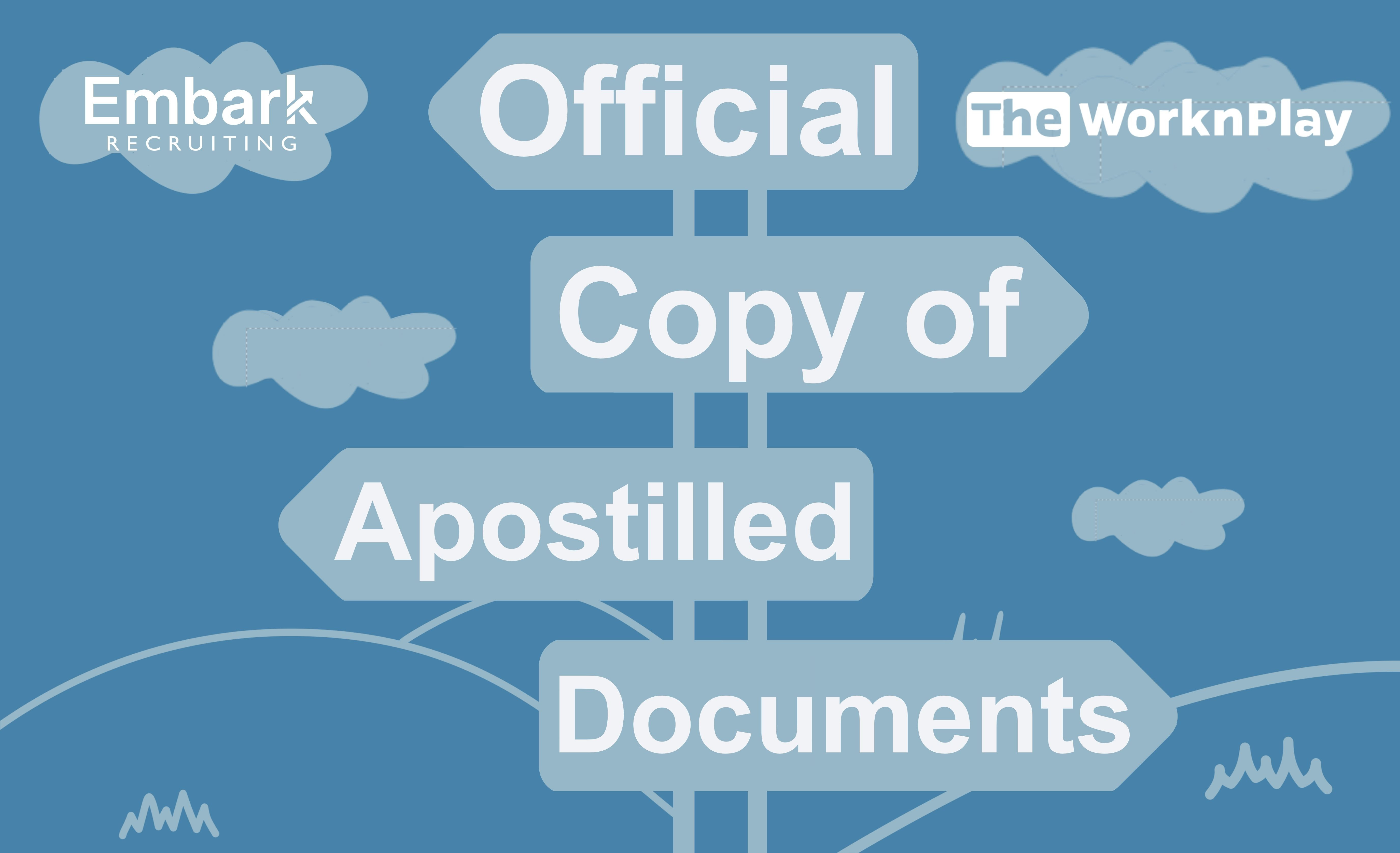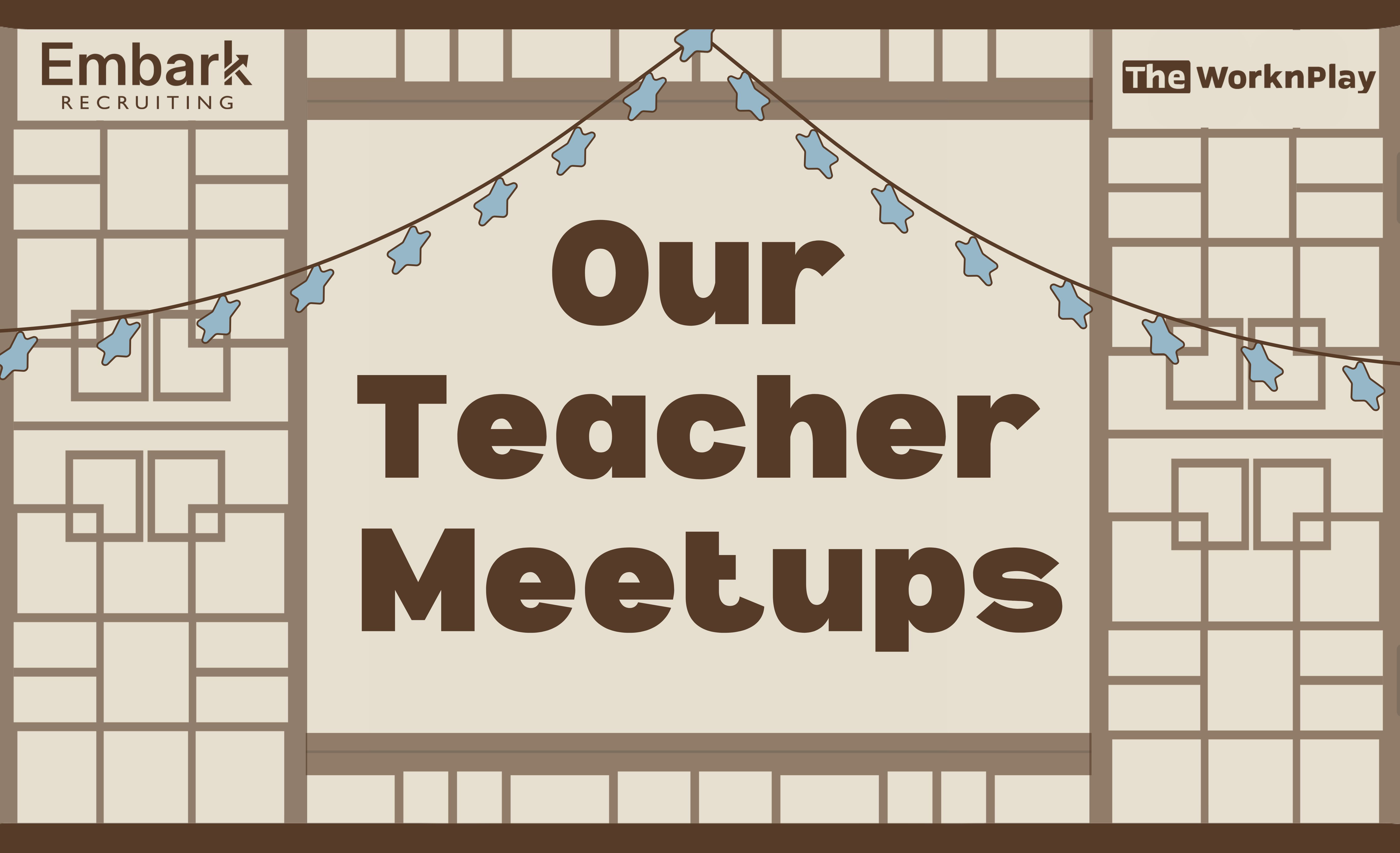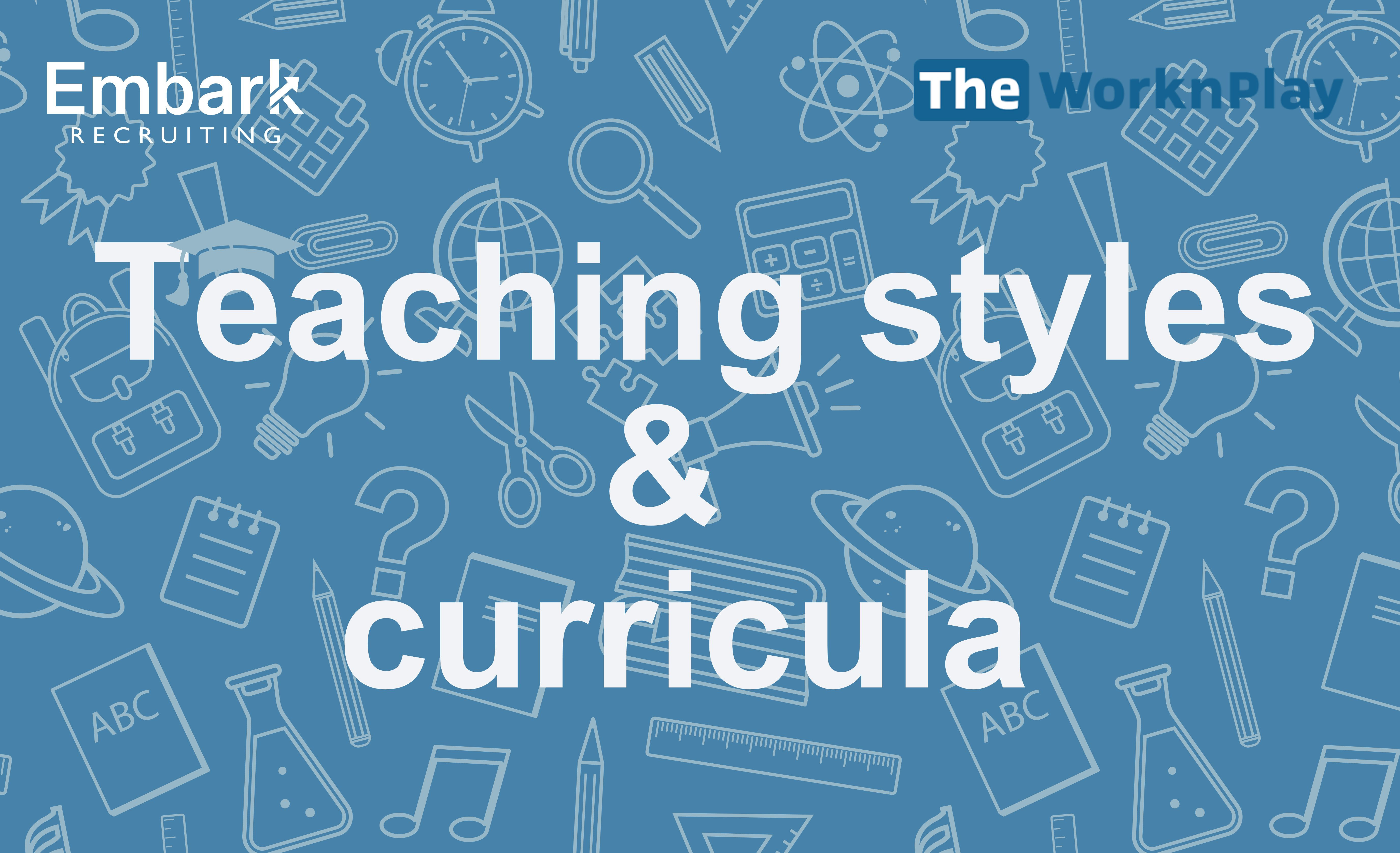by Embark Recruiting
Even if this is your first teaching job, schools in Korea want to understand your teaching style, your motivation, and your ability to connect with students. Common interviews are conducted via Zoom or Google Meet. In some cases, in-person interviews are required for teachers already residing in Korea.
ESL interviews generally cover three areas: basic questions, career questions, and in-depth educational questions. Schools also allow you to ask questions, allowing you to assess whether the school is a good fit.
Common Questions from Schools for New Teachers
Basic Questions
Basic questions allow schools to get to know you and your background. Some examples include:
Can you tell me a bit about yourself?
Schools expect a short, friendly introduction that highlights your education, experience with children (formal or informal), and reasons for wanting to teach in Korea.
Sample Answer:
“I recently graduated with a degree in ____. During university, I gained experience working with children through tutoring and volunteer activities. Those experiences showed me how rewarding it is to help students build confidence in their abilities. I am organized, dependable, and open to feedback. I am especially interested in working in a structured curriculum where I can grow professionally while contributing positively to the school community.”
Why do you want to teach in Korea?
Show genuine interest in Korean culture and education. Avoid answers that focus only on travel or love of Korean pop culture and media. Emphasize your desire to contribute to students’ learning or to grow as a teacher.
Sample Answer:
“I am interested in Korea because of its strong educational culture and the value placed on student achievement. I respect the structured approach many Korean schools take toward English education. I am motivated to work in an environment where students are serious about learning and where teachers collaborate closely to support student progress."
What do you like about teaching?
Emphasize enthusiasm for helping students improve, build confidence, and enjoy learning English.
Sample Answer:
“I enjoy seeing measurable improvement in students. As a student, I often helped my friends prepare for exams, and I noticed that what made the biggest difference was not just explaining the answer, but breaking it down in a way that made sense to them. I appreciate being part of that progress and helping students recognize their own growth.”
How do you motivate students?
Mention strategies such as using games, praise, interactive activities, or goal-setting.
Sample Answer:
“I focus on setting small, achievable goals so students can see their improvement. I was a visual and hands-on learner, so I would try to use visual cues and use supplemental activities, but I also emphasized progress so students recognize what they have learned. When students see tangible improvement, their motivation increases.”
How do you handle difficult students or situations?
Explain how you stay calm, positive, and patient, and describe strategies for redirecting attention or encouraging engagement.
Sample Answer:
“I try not to react emotionally when a student is being difficult. The first step for me is to pause and make sure expectations were actually clear. Sometimes behavior comes from confusion or not understanding the task. If the issue continues, I would speak with the student privately rather than correcting them in front of the class. In many cases, adjusting the level of the activity or giving the student a specific role helps redirect their energy."
Where do you see yourself in the next few years?
Provide realistic, professional answers. Schools appreciate teachers who are committed but flexible.
Even without formal teaching experience, focus on transferable skills such as leadership, communication, organization, and problem-solving.
Sample Answer:
“In the next few years, I hope to grow into a confident and experienced ESL teacher. I want to deepen my classroom management skills and become someone the school can rely on. I am looking for stability and professional development rather than a short-term experience.”
Career Questions
Why did you choose to teach ESL?
Sample Answer:
“English provides students with academic and professional opportunities. I am motivated by helping students develop practical communication skills that increase their confidence in real-world situations.”
What is your biggest achievement?
Sample Answer:
“One of my biggest achievements was successfully balancing my academic responsibilities with part-time work during university. Managing those commitments strengthened my time management and reliability, which are skills I believe are essential in teaching.”
Educational Questions
Educational questions assess your ability to handle real classroom situations and adapt to new curricula. Examples include:
How will you adapt to a new curriculum in a different country?
Sample Answer:
“In my first week, I would focus on understanding the curriculum thoroughly. I would observe experienced teachers, ask for clarification when needed, and align my lessons and activities carefully with the school’s expectations.”
How would you manage a class with students who do not speak English well?
Sample Answer:
““I use simple language, visual support, modeling, and repetition. I check comprehension frequently and encourage students to repeat instructions in their own words. Clear structure and consistent routines are especially helpful for lower-level learners."
How would you respond to feedback from students, staff, or parents?
Sample Answer:
“I would listen carefully and reflect before responding. I understand that feedback helps me improve, especially in a new cultural environment. I prefer clear communication so I can adjust quickly and meet expectations.”
Are you comfortable performing additional duties such as substituting for another teacher or managing classroom emergencies?
Sample Answer:
““Yes, I understand that flexibility is part of working in a school environment. If I were asked to substitute, I would follow the existing lesson plan as closely as possible and maintain consistency for the students. In the case of an emergency, I would remain calm and follow the school’s established procedures immediately.”
What do expect to be the hardest aspect of teaching English as a new teacher?
Sample Answer:
“One of the more challenging aspects of teaching English is helping students overcome the fear of making mistakes. Many learners understand more than they are willing to say. Encouraging students to gain confidence is the most important part of learning. I believe building that confidence gradually is one of the most important and complex parts of teaching.”
Do you have any previous experiences that will support your success as a teacher in Korea?
Sample Answer:
"I have experience leading groups and presenting information clearly, which has helped me become comfortable managing a classroom and maintaining students’ attention. Working in environments that required organization and time management has prepared me for the structured schedules common in Korean academies. I understand the importance of being punctual, prepared, and consistent, especially in a system where parents and schools have high academic expectations."
Preparing for Interview Questions Based on Student Age Group
During a teaching interview, schools often tailor their questions to the specific age group you would be teaching. Preparing responses that reflect the developmental needs of those students helps demonstrate that you understand how to teach at that level.
Even as a new teacher without formal classroom experience, you likely have relevant experiences that showcase your ability to work with children. Think about time spent with younger family members, tutoring, coaching, mentoring, or volunteering with children in that age group. These experiences can highlight your ability to build relationships, communicate clearly, provide guidance, and support students.
Preschool and Kindergarten Students
Teaching very young learners requires patience, creativity, and energy. Interviewers want to understand your personality and your approach to early childhood education.
Common Questions and Sample Answers:
Do you believe that every child is different, and how does that impact your approach in the classroom?
Sample: “Yes, I believe each child has their own learning style and pace. I use differentiated activities, visuals, and movement-based games to engage all students and ensure they can learn effectively.”
What do you think you'll enjoy most about teaching younger children?
Sample: “I love their curiosity and enthusiasm. I believe it will be rewarding to see their confidence grow as they learn new words and concepts through songs, stories, and play.”
Why would you like to work here?
Sample: “I admire your school’s approach to early years education and focus on creative learning. I want to contribute to this environment and help children develop a love of learning.”
Elementary Students
Elementary-aged students require structure, creativity, and engagement. Interviewers look for teachers who can make learning interactive and maintain attention.
Common Questions and Sample Answers:
How do you handle students who are shy or hesitant to speak?
Sample: “I try to create a safe environment where students feel comfortable expressing themselves without fear of judgment.”
How would you handle disputes between students?
Sample: “I encourage students to express their feelings calmly and help them find a fair solution. I model respectful communication and guide them in resolving conflicts. If needed, I would ask a senior member of staff for help"
Middle School Students
Middle school students require motivation, patience, and structure. Interviewers want teachers who can manage classroom dynamics and encourage participation.
Common Questions and Sample Answers:
How do you motivate students who are reluctant to participate?
Answer: “I connect lessons to their interests and use interactive activities, such as group work and challenges. I also provide positive reinforcement to encourage even small efforts.”
How would you handle students who question or challenge your authority in class?
Answer: “I remain professional and calm. I acknowledge their perspective and guide them back to the lesson objectives. Maintaining respect while setting boundaries is key.”
Final Tips for ESL Interviews
Be concise, confident, and professional in your answers.
Tailor responses to show genuine interest in Korea and the school’s students.
Highlight relevant experiences, even informal or volunteer work.
Prepare examples of skills you think would translate well into the classroom.
Demonstrate adaptability, patience, and enthusiasm for teaching.
By preparing for these common questions and practicing thoughtful answers, even first-time teachers can make a strong impression and increase their chances of securing a position in Korea.











